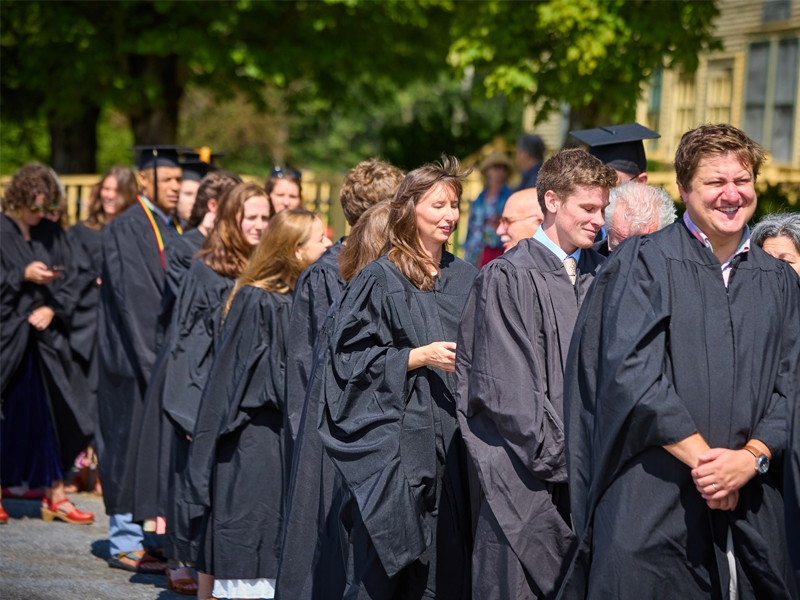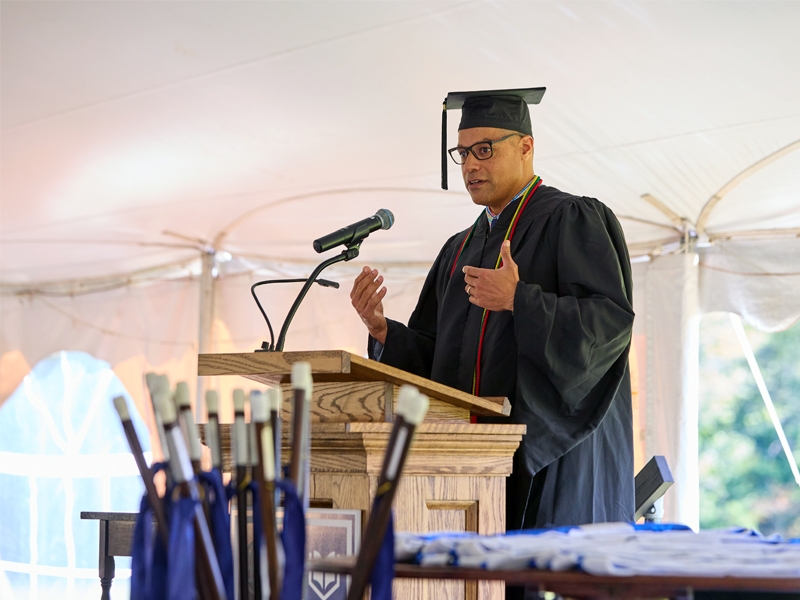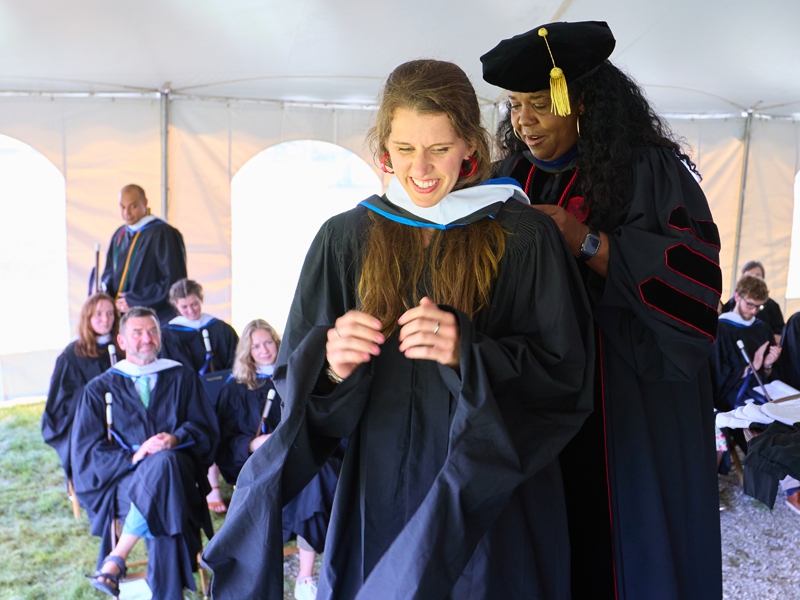Bread Loaf School of English Awards 50 Master's Degrees

RIPTON, VT. – The Middlebury Bread Loaf School of English awarded 50 master’s degrees this summer at the conclusion of its 105th session.
Bread Loaf celebrated graduates of the class of 2024 at its Vermont campus on Saturday, August 10. Dean Emily Bartels and director Lyndon Dominique presided over the ceremony along with Middlebury President Laurie Patton. In her final remarks to Bread Loaf students as Middlebury president, Patton reflected on the nature of community on the Ripton campus and beyond.
Community is built on a shared question—a big question—one that you will never know the answer to, one that you will never get tired of asking, and one that you love to ask, Patton told the graduates.
“Remember that the best way to transform a community from a random selection of people into a community of belonging is through sharing your questions and listening profoundly to others.”
Senior class president Louis G. Smith offered remarks to 19 of his peers who studied in Vermont for their final summer and four who completed their degrees with online tutorials. Smith also touched on community and belonging, two themes that played an important role throughout the summer session.
“This legacy of community and belonging that we live in is something that we’ve fomented across several years,” said Smith. “We pass it on and on and on, and this is what makes this place so incredible.”

Graduates on the Vermont campus selected Bread Loaf professor David Wandera MA ’08 MLitt ’13 to give the commencement address. Wandera is associate professor of special education, language, and literacy at The College of New Jersey. A linguistic anthropologist, he studies the nature of language and identity practices among youth in globalizing localities. Wandera challenged the graduates to think critically about the idea of belonging and to use it as a catalyst for change.
“If we have listened to these thoughts about belonging and listening leaves us with a warm and fuzzy feeling of assurance and affirmation, then there is a problem,” said Wandera. “It was not my intention to draw that feeling out of you. Rather, my objective was to trouble the notion of belonging to necessitate urgent transformative self-scrutiny and self-work, constant reflexive vigilance, because belonging is always aspirational.”
Patton introduced the conferring of degrees while Bread Loaf professor Michelle Bachelor Robinson, director of comprehensive writing and English faculty at Spelman College, served as master’s hooder.

Earlier in the summer, the two other Bread Loaf campuses celebrated their students and graduates. At the California campus at the Middlebury Institute of International Studies, participants in Bread Loaf’s Summer Institute in the Global Humanities held a celebration to honor three graduating seniors, and all students presented their work at an academic symposium on July 27. Bread Loaf’s Oxford campus held its commencement exercises for 23 degree-earners on Saturday, August 3rd at Exeter College Chapel.
Established in 1920, the Bread Loaf School of English is one of Middlebury’s summer residential graduate programs, offering courses in literature and the related fields of literacy and pedagogy, creative writing, and theater arts. Students, mostly K-12 English or language arts teachers, come from across the United States and beyond for one or more summers of intensive continuing education. Students may also elect to pursue an MA or MLitt degree in English. Faculty members come from eminent institutions in the U.S. and U.K. to teach and learn with the student body at sites in California, England, and Vermont.

